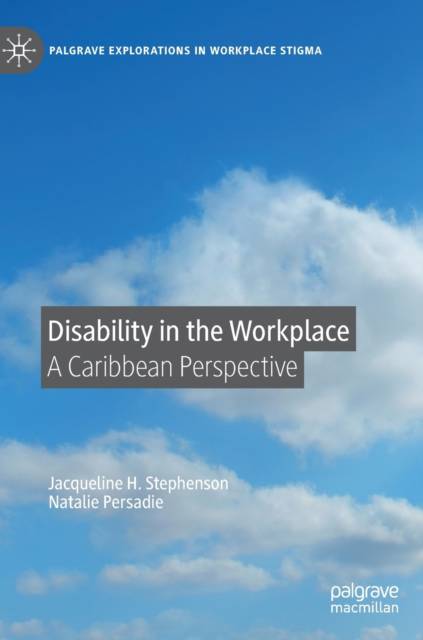
- Afhalen na 1 uur in een winkel met voorraad
- Gratis thuislevering in België vanaf € 30
- Ruim aanbod met 7 miljoen producten
- Afhalen na 1 uur in een winkel met voorraad
- Gratis thuislevering in België vanaf € 30
- Ruim aanbod met 7 miljoen producten
Zoeken
€ 158,45
+ 316 punten
Uitvoering
Omschrijving
This work critically examines diversity, discrimination, and inclusion in the English-speaking Caribbean nations, with a specific emphasis on persons with disabilities. The chapters include an evaluative analysis on the extant theoretical and empirical literature on persons with disabilities in employment, exploring the nature of their disability, the role of information technology in gaining and retaining employment, and an analysis of the laws and relevant policies which prohibit the discrimination against persons with disabilities in the Caribbean region. Though the enactment of legislation outlawing the discrimination of persons with disabilities is not widespread in the Caribbean, a few select territories have taken positive steps towards recognition of the need to achieve inclusion of persons with disabilities and accept the diversity of the Caribbean populace.
After exploring the general state of disability and discrimination in the Caribbean region, the authors analyze workplace accommodations provided to persons with disability, particularly as relations to IT and assistive devices, before focusing on workplace stigmas related to mental health disability and employment law.
In addition to literature-based analyses, the book includes qualitative case studies, with the goal of providing benchmarks in organizational responses to employees with disabilities. Further, the authors highlight lessons to be learned from other countries in addressing inequality in the workplace for disabled persons.
With its analysis of employment as well as socio-economic and legal issues, this interdisciplinary text will serve as a useful resource in not only understanding the organizational challenges faced by persons with disabilities in the region but also the necessary legislation needed to address discriminatory practices on a wider scale.
After exploring the general state of disability and discrimination in the Caribbean region, the authors analyze workplace accommodations provided to persons with disability, particularly as relations to IT and assistive devices, before focusing on workplace stigmas related to mental health disability and employment law.
In addition to literature-based analyses, the book includes qualitative case studies, with the goal of providing benchmarks in organizational responses to employees with disabilities. Further, the authors highlight lessons to be learned from other countries in addressing inequality in the workplace for disabled persons.
With its analysis of employment as well as socio-economic and legal issues, this interdisciplinary text will serve as a useful resource in not only understanding the organizational challenges faced by persons with disabilities in the region but also the necessary legislation needed to address discriminatory practices on a wider scale.
Specificaties
Betrokkenen
- Auteur(s):
- Uitgeverij:
Inhoud
- Aantal bladzijden:
- 265
- Taal:
- Engels
- Reeks:
Eigenschappen
- Productcode (EAN):
- 9783031193392
- Verschijningsdatum:
- 14/12/2022
- Uitvoering:
- Hardcover
- Formaat:
- Genaaid
- Afmetingen:
- 148 mm x 210 mm
- Gewicht:
- 480 g

Alleen bij Standaard Boekhandel
+ 316 punten op je klantenkaart van Standaard Boekhandel
Beoordelingen
We publiceren alleen reviews die voldoen aan de voorwaarden voor reviews. Bekijk onze voorwaarden voor reviews.











